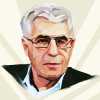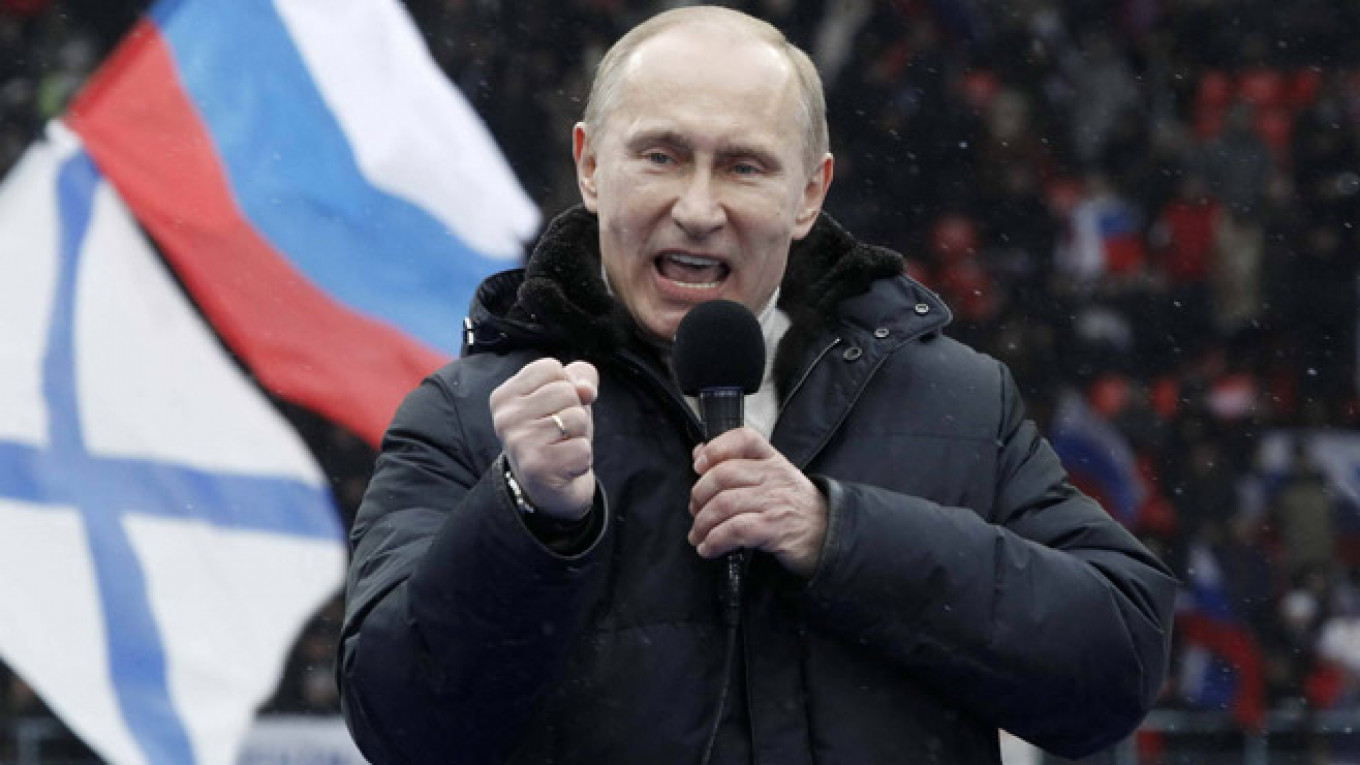Correction appended:
The deeper a conflict is in society, the more people want a simple explanation of their opponents' behavior. For critics of President Vladimir Putin's actions, the leader has lost credibility and seems to not know exactly what he is doing.
Most Russians are elated over the annexation of Crimea, but it is an economically depressed region with dilapidated infrastructure and high crime. Russia will pay an exorbitant price in terms of the direct cost of rehabilitating services, infrastructure and pensions on the peninsula as well as the long-term economic and political costs that Russia will endure for years.
The West has little to gain from dealing with a reckless and unpredictable Russia.
At the same time, however, Putin wanted to accomplish other tasks by annexing Crimea. First, Putin needed to restore his legitimacy as president, something that has always been based more on his personal charisma than on the only moderately persuasive election results. During his early years in office, Putin was a true "people's president" who expressed the aspirations of the majority of Russians. For example, his famous threat to "rub [Chechen terrorists] out in the outhouse" was not so much a political platform as it was the expression of a national idea.
But several years later, Russians started to fall out of love with their "national leader." At first his remarks elicited less enthusiasm, then less interest — and finally, less respect. When he descended to the bottom of the Black Sea in 2011 and "discovered" an ancient amphora that was completely staged, people smiled at the corny PR stunt. But when he flew a hang-glider with a flock of Siberian cranes, those smiles turned to laughter. Putin started to lose his connection with his electorate.
At that moment, Putin realized that he needed to do something to improve his plummeting ratings. He therefore set out to reinvigorate his "charisma factor" by leading a witch hunt against "internal enemies" — homosexuals, foreign agents, opponents of the Russian Orthodox Church and anyone else falling outside the loyalist pale.
To be sure, the tenacious campaign against gays and other "enemies of the state" helped boost Putin's approval rating, but not enough. Putin then cast his eye upon Crimea, seeing in it a goldmine of opportunity and a PR bonanza. Knowing that most Russians saw the ceding of Crimea to Ukraine as a historical injustice, Putin correctly sensed that returning it to Russia would unleash a torrent of national pride. For the first time in 23 years, Russians felt like citizens of a strong global power, and the president's ratings soared above 80 percent.
Putin's second goal was not political, but existential. After 14 years in power, any leader naturally begins thinking about his place in history. According to Putin's remarks and judging from the people he quotes and most admires, it seems that he wants to be known as the "consolidator of Russian territory." Of course, Putin will not restore the former borders of the Russian Empire, but he will extend Moscow's influence over all the territories that he, along with the overwhelming majority of Russians, consider to be inherently part of Russia. It is no coincidence that Putin is arguing for the use of a single textbook on Russian history. He wants to control what schoolchildren in the second half of the 21st century will read about him and his main achievements.
The West is trying to spoil Putin's great Crimean victory with sanctions. But more important, Western countries are trying to ensure their own security. Moscow's annexation of what was legally Ukrainian territory dealt a devastating blow to the foundation of global security and stability. As a result, many leaders in the West no longer consider Russia a potential partner, but an unpredictable potential threat.
Of course, neither side has plans to pick a fight or to stop cooperating in areas of clear mutual interest. But this time around, the West wants to contain Russia not for ideological reasons but as an unavoidable global imperative.
From this perspective, the targeted sanctions against members of Putin's inner circle also look entirely logical. After all, for the first time since he came to power, Putin's actions — the Crimean annexation — benefited him but caused damage to members of his inner circle. Many of them have close family members, real estate and bank accounts in the West, and their children study there. Many had counted on living out their retirement years in a cozy little castle in Spain and surviving on the billion-dollar fortunes they socked away for hard times. Now their private jets stand idle with nowhere to fly.
This situation is unlikely to lead to a palace coup, but it does ratchet up tensions among the elite and creates a time bomb that could explode at any time. Of course, Russia's leaders can try to pass it off with cracks about the weakness and shortcomings of the West, but they have been dealt a painful blow and are still reeling from the impact.
After the Crimean annexation, the rules of the international affairs changed dramatically. A "nonzero-sum game" has emerged, one in which everyone loses and no winning strategy is apparent. The West has little to gain from increased military spending and dealing with a reckless and unpredictable Russia.
But Russia faces far more devastating losses in the medium and long-term. If this were a card game, the West risks losing a couple of month's wages, whereas Russia is risking complete financial ruin.
With the successful Crimean annexation, there is no doubt that Putin achieved his goals. But the real question is whether those goals serve Russia's best interests.
Correction:
This version has been corrected to state that Putin found the amphora in the Black Sea. An earlier version incorrectly stated that it was found in Lake Baikal.
Leonid Gozman is the president of Perspective. This comment appeared in Vedomosti.
A Message from The Moscow Times:
Dear readers,
We are facing unprecedented challenges. Russia's Prosecutor General's Office has designated The Moscow Times as an "undesirable" organization, criminalizing our work and putting our staff at risk of prosecution. This follows our earlier unjust labeling as a "foreign agent."
These actions are direct attempts to silence independent journalism in Russia. The authorities claim our work "discredits the decisions of the Russian leadership." We see things differently: we strive to provide accurate, unbiased reporting on Russia.
We, the journalists of The Moscow Times, refuse to be silenced. But to continue our work, we need your help.
Your support, no matter how small, makes a world of difference. If you can, please support us monthly starting from just $2. It's quick to set up, and every contribution makes a significant impact.
By supporting The Moscow Times, you're defending open, independent journalism in the face of repression. Thank you for standing with us.
Remind me later.








